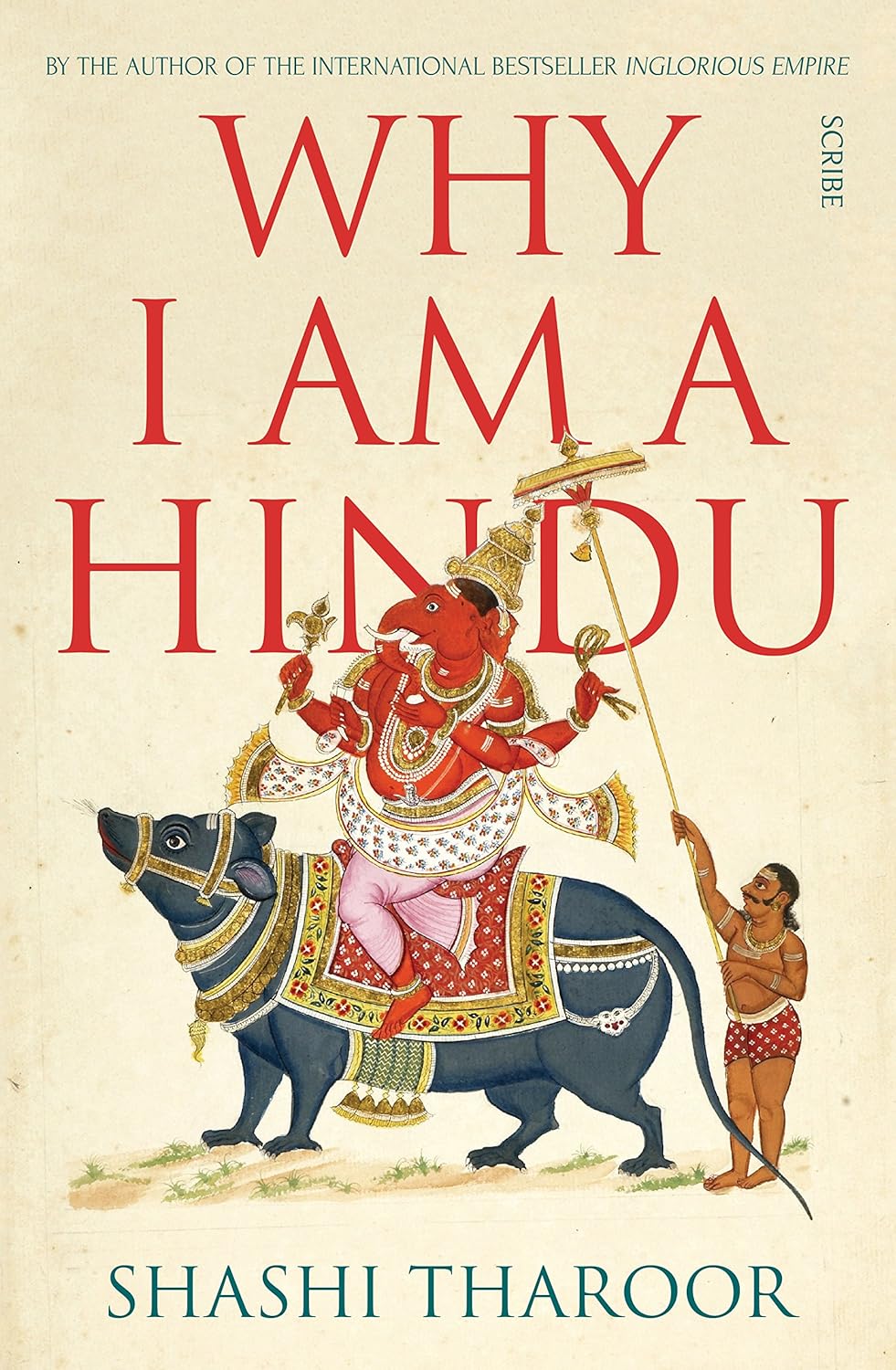About this deal
Second half is written by politician Tharoor and is long list of complaints against Modi Government. Hindus can also worship at home, and many have a special shrine dedicated to certain gods and goddesses.
Well researched book on the Hindu religion, rediscovering its origins in the Vedas, its journey through several seminal writings like the Upanishads, Puranas, Ramayana and Mahabharata, several reformers including Adi Shankaracharya and Swami Vevakananda and finally to the current version of political Hinduism called 'Hindutva' or 'Sanghism' that we have seen sprout and recently flourish in our lifetime. Older Hindus will feel a sense of deja vu during the course of reading this book, when they come across many tolerant beliefs and practices that were commonplace during their childhood but that have been marginalised in today's restricted and narrow view of politicised Hinduism. The Smarta or Smartism tradition of Hinduism is somewhat more orthodox and restrictive than the other four mainstream denominations. It tends to draw its followers from the Brahman upper caste of Indian society.Hinduism’ is thus the name that foreigners first applied to what they saw as the indigenous religion of India. It embraces an eclectic range of doctrines and practices, from pantheism to agnosticism and from faith in reincarnation to belief in the caste system. But none of these constitutes an obligatory credo for a Hindu: there are none. We have no compulsory dogmas. This is, of course, rather unusual. A Catholic is a Catholic because he believes Jesus was the Son of God who sacrificed himself for Man; a Catholic believes in the Immaculate Conception and the Virgin Birth, offers confession, genuflects in church and is guided by the Pope and a celibate priesthood. A Muslim must believe that there is no God but Allah and that Muhammad is His Prophet. A Jew cherishes his Torah or Pentateuch and his Talmud; a Parsi worships at a Fire Temple; a Sikh honours the teachings of the Guru Granth Sahib above all else. There is no Hindu equivalent to any of these beliefs. There are simply no binding requirements to being a Hindu. Not even a belief in God.” It is only the period immediately before and after India's Independence, which has seen the rise of political figures with a fundamentalist view of Hinduism where the author has stated his own views. Increasingly this age-old religion is being used by politicians to manipulate voters, and like many free-thinking Indians of today, the author has expressed the worry of India turning into a fundamentalist religious country much like our north-western neighbour. This should not come as a surprise, knowing the author's political affiliations. Though he does not claim this to be an unbiased work, I would have rated it 5-star if he had managed to keep it objective till the very end. A) There are nude male and female sculptures in Hindu temples (B) There are idols of goddess in temples (C) From A and B, it is perfectly logical for MF Hussain to paint Goddress in the Nude and no one should complain about it.
But Vivekananda’s thesis neatly flattened out the challenge that Buddhism had posed to Brahmanical power, the monarchical state, ritualism, and caste discrimination. It simply assimilated Buddhism into Hinduism. The concept of dharma was introduced in new texts, and other faiths, such as Buddhism and Jainism, spread rapidly. Hinduism vs. Buddhism Even as Orientalists, colonial administrators and intellectuals in Western universities set about translating, codifying and reducing a complex philosophic system to manageable proportions, we witnessed the creation of a homogenised Hinduism. This was upheld by nationalists as the anchor of an Indian identity. Such is the power of intellectual colonialism! Smartism followers worship five deities: Vishnu, Shiva, Devi, Ganesh and Surya. Their temple at Sringeri is generally recognized as the center of worship for the denomination.I read it for a different reason: There is no end of English-language literature on Hinduism written from one of two perspectives: either erudite, academic analysis or wit a specifically Christian, and usually missionary, view. (There's a lot of material that amounts to, "How to talk to a Hindu about Jesus" which presumes that Hindus need to be something other than what they are.) I remember a line from the early days of my reading and it goes like this – ‘If a poet falls in love with you, you will forever be immortalised’. That was the feeling I had when I finished reading this book. On one side are trolls of social media, simply bashing you for any and every point that you express. The validity or otherwise of the point matters the least to them. All that they want is to put you down and insult you. They turn every debate into a bitter argument and leave a bad taste in the mouth. At the other end of the intellectual spectrum are people like Shashi Tharoor. These are the kind of people that you don’t normally mess with, or else they ‘immortalise’ you by writing in reams to prove how dumb you and your opinions are. The primary sacred texts, known as the Vedas, were composed around 1500 B.C. This collection of verses and hymns was written in Sanskrit and contains revelations received by ancient saints and sages.
 Great Deal
Great Deal 